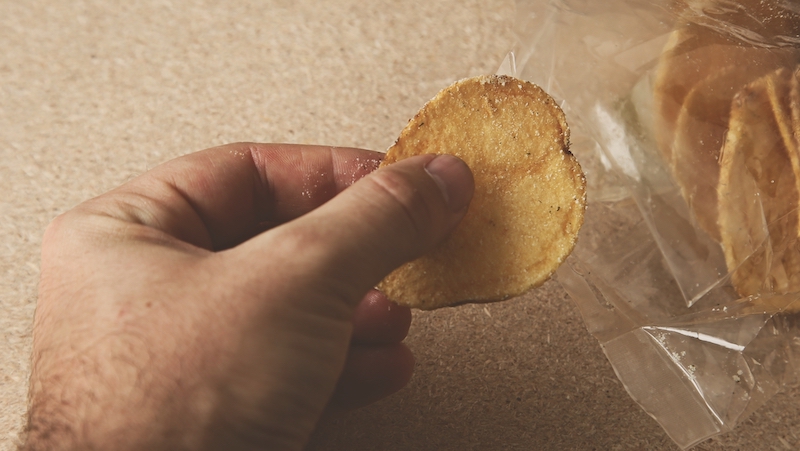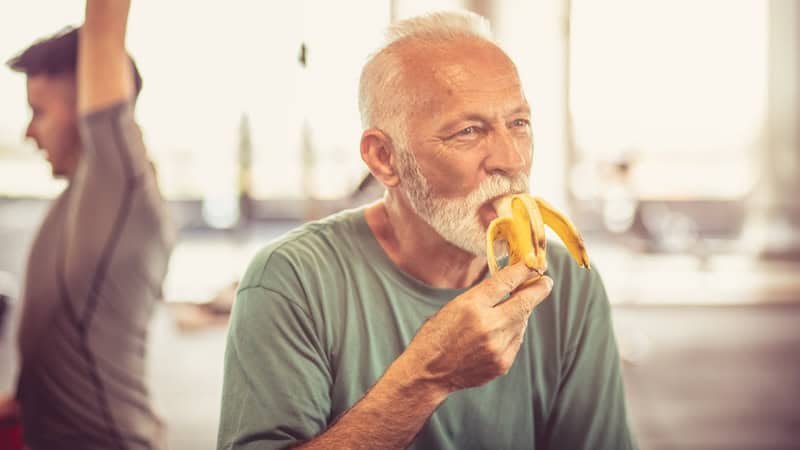3 Things You Shouldn’t Do After 5 p.m. If You’re Trying to Lose Weight
And no, eating after 5 is not one of them

Dietitian Lainey Younkin shares three things you shouldn’t do after 5 p.m. if you’re trying to lose weight – three easy lifestyle changes for your health.
Don’t worry, we aren’t going to tell you to stop eating after 5 p.m. However, you might be doing some things from the time you log off work until you hit the hay that are preventing you from seeing the scale move. While a small, sustainable calorie deficit is needed for weight loss, emerging research on circadian rhythms, timing of meals, and intermittent fasting show that when you eat may be just as important as what you eat.
3 things you shouldn’t do after 5 p.m. if you’re trying to lose weight
According to dietitians, you shouldn’t:
1. Binge at the end of the day
Do you have insatiable hunger in the evenings that leads to eating everything in sight? First of all, you aren’t alone. Second, nixing this habit is easier than you think. Going on diets has conditioned you to “eat less.” Therefore, you probably are not eating enough during the day, which backfires at night leading you to overeat.
To prevent bingeing in the evenings, “Make sure you are making the time to eat enough to meet your needs throughout the day,” says Nicole Stefanow, M.S., RDN. “This way you aren’t feeling ravenous come clock out. When we let ourselves get too hungry, we are more likely to overeat before our bodies know we are full,” she says.
2. Eat straight out of the bag
Eating chips straight out of the bag leads to mindless eating, especially if you’re doing it while also scrolling on your phone or watching TV. Before you know it, you could consume a meal’s worth of calories. “Instead of mindlessly snacking, make a plan for what your evening snack will include (think produce and protein for filling you up and keeping you satisfied) and savor it. Turn off the TV and phone and just eat,” says Julia Stevens, M.P.H., RDN, CPT.
3. Skip carbs at dinner
It can be tempting to skip carbohydrates (or other food groups) at dinner, but if your dinner doesn’t fill you up, you’ll find yourself rummaging through the cabinets a couple of hours later. “When you don’t have a balanced dinner, you’ll probably end up consuming a lot more calories (and not the nutritious kind!) once your hunger catches up to you,” says Melissa Mitri, M.S., RDN.
10 natural foods for weight loss
“Carbohydrates provide fuel for our brain and central nervous system, and fats help absorb certain nutrients, reduce glycemic impact and also contribute to satiety and fullness. Proteins are the building blocks for muscles and have the ability to increase metabolism and keep us feeling full and satiated for longer. Eliminating an entire food group could foster feelings of deprivation, and this could lead you to overeat late at night,” says Mariana Dineen, M.S., RD, a dietitian and mom of three who specializes in sustainable weight loss.
Make sure your dinner is satisfying too, says registered dietitian Judy Barbe, M.S., RD. Dinner can be healthy without tasting good but, “If you nurture your soul and eat well, you’ll be less likely to snack later mindlessly,” says Barbe.
Avoiding these three things you shouldn’t do after 5 p.m. can aid you in reaching your weight-loss goals and keep you healthier, too.
EatingWell is a magazine and website devoted to healthy eating as a way of life. Online at www.eatingwell.com.
© 2022 Meredith Corporation. Distributed by Tribune Content Agency, LLC.


